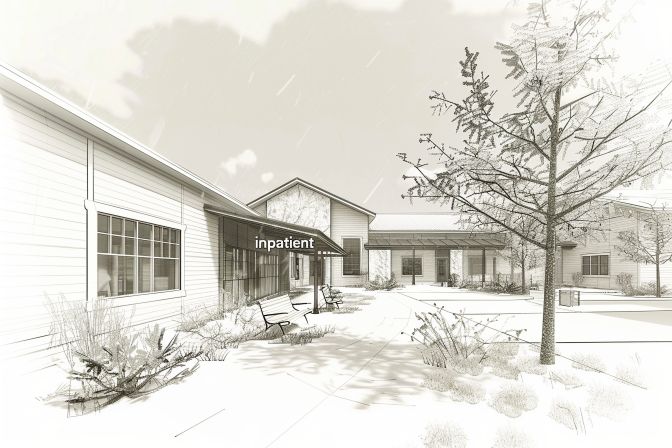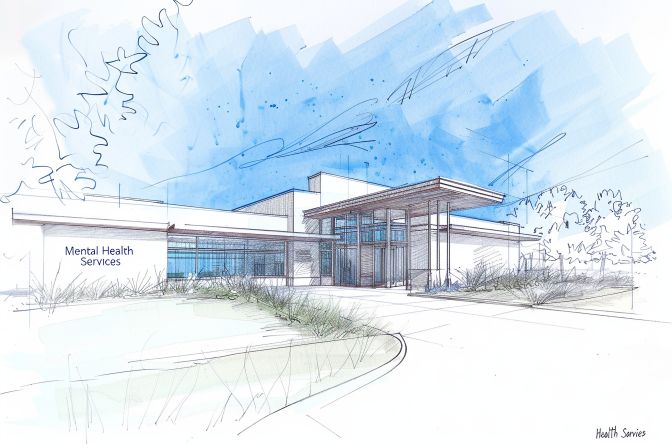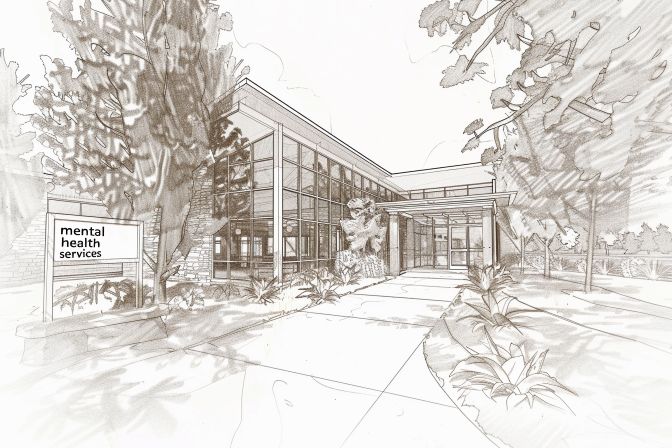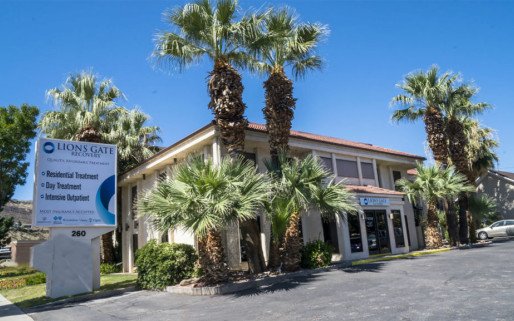Utah Rehab
Utah is a state renowned for its beauty, being home to the Mighty Five national parks, and its strong community values rooted in faith. The state has seen an increase in opioid-related overdoses, particularly involving synthetic opioids like fentanyl.
As such, Utah offers a full range of residential and community-based services aimed at supporting individuals struggling with substance misuse. Rehabilitation providers offer specialist programs such as medically supervised detoxification and treatment for co-occurring mental health conditions. Many accredited addiction rehabilitation services in the state are also funded and run by faith groups.
Utah prioritizes prevention and illicit drug enforcement measures when it comes to addressing the challenges presented by the opioid epidemic. The state has used federal grants through programs like the State Opioid Response to increase access to treatment and provide funding to prevention programs. Utah continues to adapt its approach to tackling the impact of substance addiction.
Prevalence of substance use disorders in Utah
There are 37,309 million current illegal drug users among Americans aged 12 and over, considering those who used within the last 30 days. This number represents a notable increase, with 13.5% of this age group using drugs in the previous month, marking a 3.8% rise year-over-year. 59,277 million people (21.4%) used illegal drugs or misused prescription drugs in the past year. 138,543 million (50.0%) have used drugs illicitly in their lifetime, though there was a slight 0.4% decrease in users year-over-year.[1]
By comparison, substance use disorder in Utah is below the US average. 8.60% of people in Utah reported a drug use disorder in the last 30 days, compared to the 13.5% US average. In the 12 to 18 age group, the reported percentage of drug use disorder is 3.92%.[2] Recognizing the early signs of addiction can decrease these numbers even further.
Most commonly abused substances in Utah
Regarding alcohol consumption, 138,522 million Americans aged 12 and over drink alcohol, with 28.320 million (20.4%) of them having an alcohol use disorder. Tobacco or nicotine products, including vapes, are used by 57,277 million people. 25.4% of illegal drug users have a drug disorder, and within this group, 24.7% have an opioid disorder, encompassing both prescription pain relievers and heroin.[1]
Compared to these numbers, illicit drug use in Utah stands at 11.53%, lower than the national average. Illegal drug use is 5.86% in the 12 to 17 age range.[2]
However, over-using prescription medicine is a commonplace addiction both in the US and Utah. Opioid use disorder stands at 1.73% for the 18+ age group and 0.43% for the 12-17 range.[2]
The most commonly used substances in Utah are alcohol, tobacco, and marijuana. The most recent statistics show the following consumption rates:
- Marijuana: 14.35% for the 18+ age group and 6.16% for the 12-17 age group
- Cocaine: 1.34% for the 18+ age group and 0.59% for the 12-17 age range
- Heroin: 0.27% for the 18+ individuals
- Methamphetamine: 0.99% for the 18+ age range and 0.10% for the 12-28 group
- Opioids: 3.28% for the 18+ age group and 1.48% for the 12-17 age group
- Tobacco: 15.30% for the 18+ group, with 11.22% using cigarettes. 1.84% of the 12-17 age group use tobacco products, while 1.71% use cigarettes specifically.
- Alcohol: 30.80% for the 18+ age group and 3.92% for the 12-17 group
Trends and patterns in overdose rates
The latest data from 2021 indicates that drug overdoses claimed the lives of an estimated 106,699 individuals, with approximately 69% of these victims being male. The states experiencing the highest rates of overdose deaths are West Virginia, Tennessee, and Louisiana. This crisis is largely attributed to the increasing misuse of opioids, including prescription medications, heroin, and synthetic options like fentanyl.[3]
Drug overdose deaths are up 30% year-over-year, with over 96,700 victims annually and almost a million casualties since 1999. 72% of those deaths are attributable to opioids in the US.[4]
Overdose mortality is lower in Utah compared to the rest of the nation. In 2021, the death rate per 100,000 population in Utah was 21.1, up from 18.9 in 2019 but down from 22.4 in 2014.[5]
Addiction Treatment in Utah
In the US, the rate of medication-assisted treatment increased by 13% yearly. Of the 964,000 people needing treatment, only 392,000 sought treatment in the 18+ age group. In the 12-17 age group, 159,000 out of 964,000 received treatment in the US.[1]
In Utah, 6.86% of the population aged 18+ reported needing treatment but not being able to get it. In the 12-17 age group, the estimate is 3.66%.[2]
The state has different treatment options:
- Recovery centers: There are 296 rehabilitation centers in Utah, of which 99 are inpatient, 232 outpatient, and 95 detox centers.
- Treatment services: Include treatments for alcohol and opioid use disorders, mental health treatment, and recovery support services.
- Specialized programs: Utah has specific programs for different groups like veterans, LGBTQ+, adolescents, and people with mental health disorders.
State and local initiatives for addiction recovery include:
- Utah Crisis Line: Provides immediate, free, confidential support, available 24/7.
- Healthy Minds Utah: Offers free, confidential, anonymous screenings with access to resources.
- “Live On:” A statewide effort to prevent suicide by promoting education and providing resources.[6]
How do I pay for rehab in Utah?
Paying for rehab is a massive hurdle to accessing treatment. In Utah, rehab centers accept self-payments like cash or credit card to pay for health care services. You can also pay through private insurance plans, military insurance, or other payment assistance like a financial plan.
Drug rehabilitation centers like Project Reality and Bear River Health Department accept Medicaid, Medicare, and other state assistance.
If these payment options are still over your budget, there are Utah rehab facilities that offer free/ no-cost care for addicts.
Local government assistance in Utah
The Utah Department of Health and Human Services, through the Office of Substance Use and Mental Health (SUMH), offers prevention, treatment, and recovery services to residents in Utah.
SUMH oversees the services given by treatment facilities to individuals struggling with mental health issues, addiction to alcohol, tobacco, or other drugs.
Other responsibilities include monitoring and evaluating mental health and substance abuse services through annual site review processes and reviewing the outcome data with the right stakeholders.
So you can be sure that the facilities you go to seek treatment are providing their services according to the law. SUMH is also responsible for providing assistance and training to local authorities to help evaluate the effectiveness of prevention and treatment programs in Utah.
On their website, you can learn more about prevention measures & programs in Utah, recovery resources, and access to substance use disorder treatment data from facilities in Utah.
If you or a family member need assistance with drug and alcohol abuse, you can reach SUMH at 801-538-3939, email, fax, or at their headquarters in Salt Lake City.
- NCDAS: Substance Abuse and Addiction Statistics [2023]. (n.d.). NCDAS. Retrieved December 21, 2023, from http://www.drugabusestatistics.org/
- 2021 NSDUH: Model-Based Estimated Prevalence for States | CBHSQ Data. (n.d.). Www.samhsa.gov. http://www.samhsa.gov/data/report/2021-nsduh-state-prevalence-estimates
- Topic: Drug use in the U.S. Statista. http://www.statista.com/topics/3088/drug-use-in-the-us/#topicOverview
- Drug Overdose Death Statistics [2023]: Opioids, Fentanyl & More. (n.d.). NCDAS. Retrieved December 21, 2023, from http://www.drugabusestatistics.org/drug-overdose-deaths/
- Drug Overdose Mortality by State. (2022, March 1). Www.cdc.gov. http://www.cdc.gov/nchs/pressroom/sosmap/drug_poisoning_mortality/drug_poisoning.htm
- http://www.sumh.utah.gov/#:~:text=,screening%2C%20with%20access%20to%20resources












